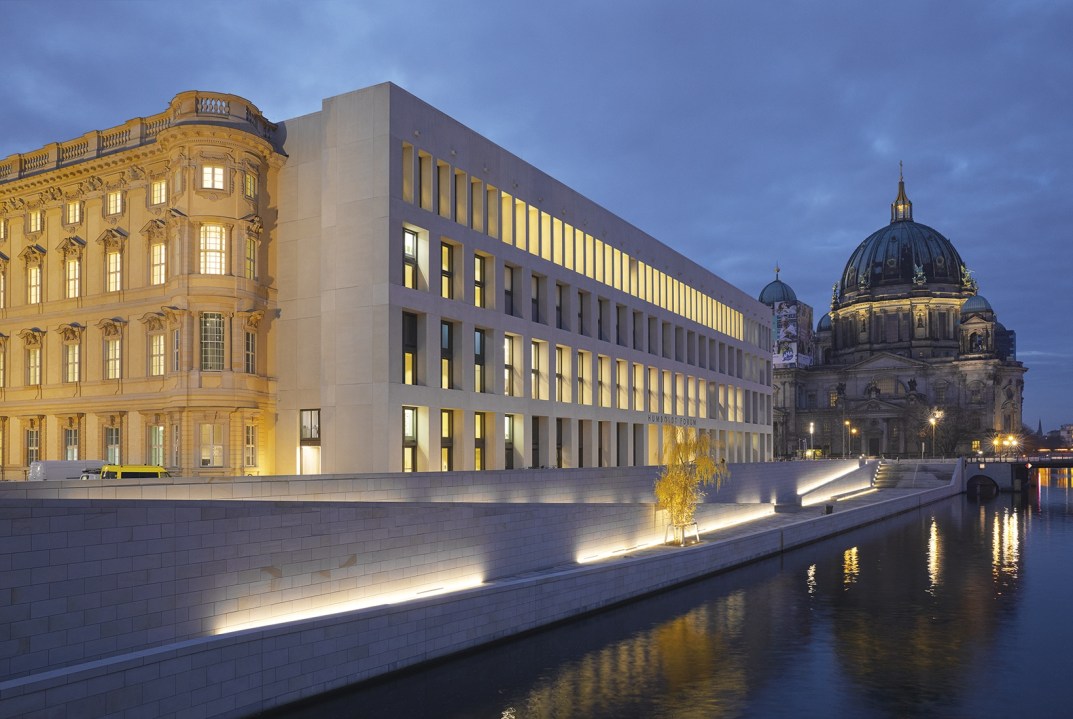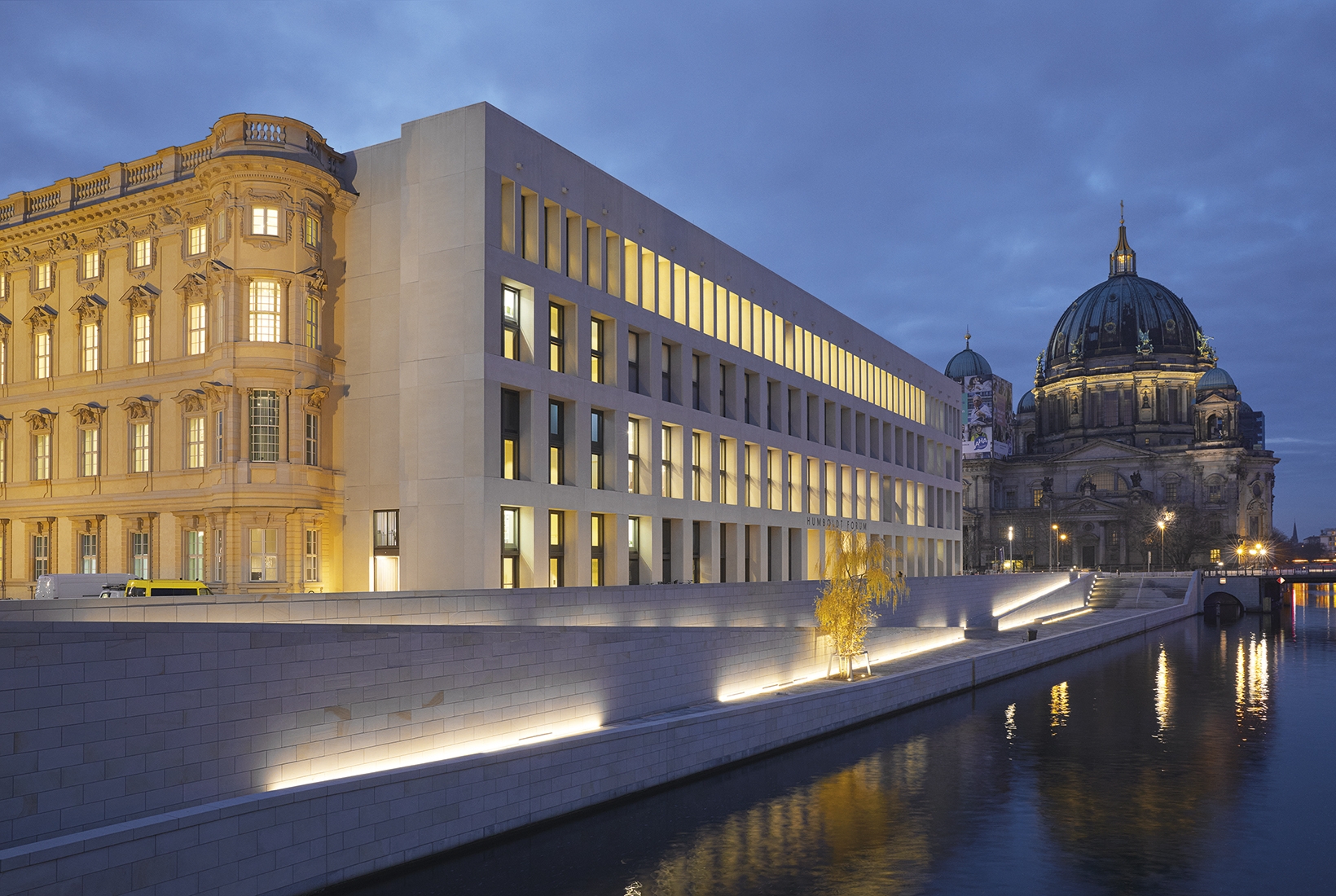‘What a loss is the excellent Humboldt. You and Berlin will both miss him greatly,’ Prince Albert wrote to his much-beloved daughter Vicky, Crown Princess of Prussia, on news of the death of the author, explorer and celebrity Alexander von Humboldt in 1859. ‘People of this kind do not grow upon every bush [‘an den Blumen’] and they are the grace and glory of a country and a century.’
After some delays and bad luck, the grace and glory of the Humboldt name flourishes once again with the opening of the Humboldt Forum. Annoyingly digital to begin with, the launch last month of the Forum signalled the culmination of Berlin’s Museum Island restoration programme and, with it, the crowning of the capital’s place within contemporary European culture. Artistic, edgy, studio Berlin finally has a modern museum infrastructure worthy of its creative class.
Yet this otherwise triumphant tale of urban reinvention now has to wrestle with the challenge of reviving an Enlightenment project amid calls for ‘decolonisation’ and deep self-doubt about any testaments to European cultural prowess. At South Kensington, we are watching developments closely as the V&A owes a profound debt — thanks to Prince Albert — to the Humboldt brothers and their philosophy of Bildung (‘self-formation’).
Alexander von Humboldt was a superstar of the romantic epoch: his travels to Chile and Peru, Mexico and Venezuela, America and Russia ensured the naming of rivers, geysers, mountain ranges, even ocean currents in his honour. He united anthropological interests with the capture of new data on climate, geography and botany. His was a relentlessly enquiring mind. ‘The empirical sciences are never complete,’ he wrote at the age of 76. ‘No generation will ever be able to boast that they have grasped the totality of all phenomena.’ But he was always happy to share his own learning and, on his return to Berlin, he delivered a series of 62 public lectures (open to women as well as men) showcasing his discoveries.
A commitment to public education lay at the heart of the Humboldtian model
This strongly democratic conception of public education was equally elemental to his brother Wilhelm von Humboldt’s thinking.








Comments
Join the debate for just £1 a month
Be part of the conversation with other Spectator readers by getting your first three months for £3.
UNLOCK ACCESS Just £1 a monthAlready a subscriber? Log in